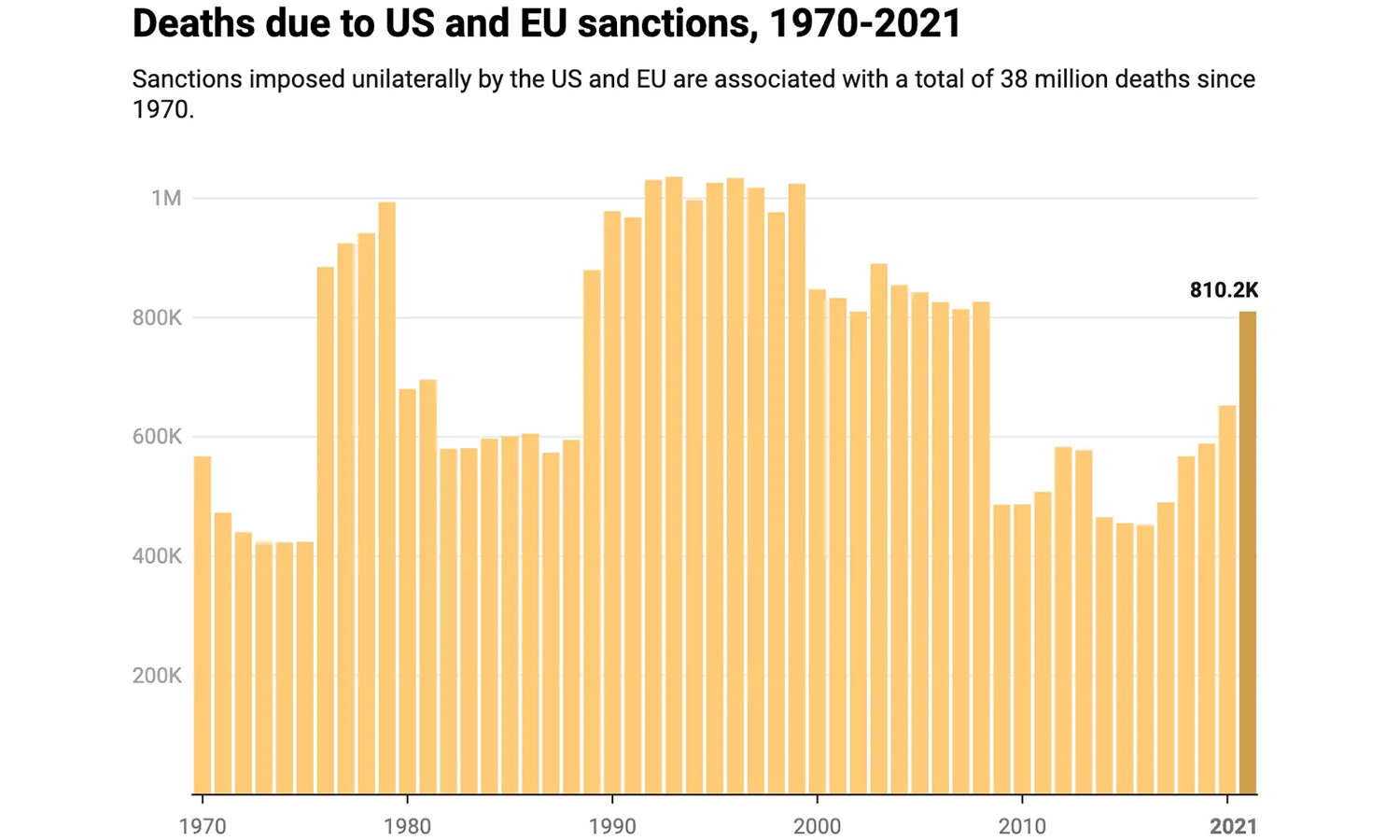President Emmanuel Macron’s panic decision last summer to dissolve the French parliament (in the hope of resurrecting some pretence of a national consensus held together by ‘moderate’ centrist parties of left and right and with ‘extremist’ parties safely relegated to the fringes) only made matters worse for fans of centrism.
To the horror of ‘moderates’, in the first round of the parliamentary elections Marine Le Pen’s National Rally (RN) party initially emerged as the strongest force, connecting with the desperate anger and contempt in which most workers hold the whole political class.
Faced with rampant inflation, the intensifying cost of living crisis, economic blowback from anti-Russian sanctions and the expensive and dangerous support for the Kiev fascists in a war in which no French worker holds any stake, workers voted en masse to kick out the ‘moderates’ whose ‘moderation’ had delivered only corruption, austerity, poverty and war.
It looked for a while as if there might be a government led by Marine Le Pen, whose right-wing populist party came out on top in the first round of the elections. Come the second round of the election though, the forces of ‘moderation’ caught their collective breath and, by tactical voting, kept the forces of ‘darkness’ at bay, forcing the RN down to third place and preserving the ‘moderate’ tone of political discourse whilst also preserving the political elite’s sacred duty of unbroken service to imperialism.
Apparently feeling that the actual funding and arming of fascists in Ukraine and elsewhere by Macron and other French ‘moderates’ was of no account, the social-democratic and green ‘progressives’ clapped each other on the back at this supposed great ‘anti-fascist victory’. But for the increasingly impoverished poor workers, many of whom had been driven to vote for Le Pen in a gut reaction against the entire political class – and against poverty and war in particular – this outcome solved nothing.
Clearly, a maverick right-wing populist like Le Pen has nothing to offer workers other than more of the same xenophobia and empty promises as those of the liberal elite she affects to despise. But the cure for fascism is not liberalism, which is its direct facilitator. Nor will tactical voting aimed at restoring ‘stability’ to the crisis-ridden capitalist system do anything to restore the fortunes of the working poor. Their only salvation lies in the wakening of the masses to the fight for socialism.
Rebellion against deepening austerity
The collapse of the three-month-old government led by Michel Barnier will be welcomed by workers raging against his proposed poverty budget for 2025, which included tax rises of €60bn and cuts to social security and welfare totalling €40bn. Acting as the European Union’s hitman, Barnier declared that these cuts are essential to rein in a public deficit of 6.1 percent of GDP and bring France back towards alignment with the EU diktat of a 3 percent limit.
When it became clear that parliament would refuse to sanction this budget, Barnier reached for paragraph 3 of Article 49 of the French constitution, which proclaims that, “after deliberation by the Council of Ministers”, it is okay to force a bill through without a vote (as Macron himself did last year so as to force through a bill raising the pensionable age that was being steadfastly opposed by the masses of the people and the majority of parliamentarians).
This threat was countered by the so-called ‘New Popular Front’ tabling a motion of no confidence in the government, which was duly passed, assisted by the votes of RN.
At the time of writing (7 December), France, a key pillar of the EU, has neither a government nor a budget for 2025, and only a ‘caretaker’ prime minister in the sorry person of Barnier.
Such periods of instability, which are bound to multiply as the global capitalist crisis of overproduction deepens, should not be the occasion for lamentation. Rather, they need to be seized on as crucial opportunities for advancing the socialist consciousness and organisation of the working class.















